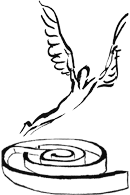|
Here are short letters that you can easily print and mail. Select the address and text; copy and paste them into Word or whatever you use for writing. Arrange on the page to your liking. Even better is to spend a few moments individualizing the text.
You could change words, add your own remarks, use different points
from the fuller information given. Get back to us if you have a question. Or if you have the luck to receive a reply—it could be important. We'd love to know that you've written. —Guy Ottewell and Tilly Lavenás, founder members of the Amnesty International groups of Greenville, South Carolina, and Lyme Regis, England. |
|
YOU CAN RECEIVE NEW APPEALS BY EMAIL. Please go to http://groups.google.com/group/humanrightsletters If you don't see a "Join this group" link, or if you
have received an email about “Ready-made human rights letters”,
you are already a member. GET FRIENDS TO JOIN! |
|
Postage for one sheet (mark envelope AIRMAIL): |
|
These “remhurls” have been sent by email to a list of friends at irregular intervals (monthly, sometimes less, sometimes more) since 1996. Since 2008 we have used this better method of distribution. We are responsible for them; they are not an official production of Amnesty International, Survival International, or any other of our sources. |
|
You may submit a letter appeal for possible use. Please make it easy for us: Keep it short. Provide a summary of the fuller information (which we like to get in chronological order). Expect to be edited. Provide a web link if possible, or a citation of the authority for the information, e.g. for an Amnesty International Urgent Action, its number, date, and "write no later than" date. Send to guy@universalworkshop.com |
SEE YELLOW BOX AT LEFT
|
Do letters do any good? Mostly they get no apparent response. But they bother the authorities and have been known to play a part in a prisoner's release. Often they cause atrocious conditions to be improved. If known about by a prisoner or other victim, they mightily ENCOURAGE. The world is different for “forgotten prisoners” from what it was in the age before Amnesty International existed. “When the first two hundred letters came, the guards gave me back my clothes. Then the next two hundred letters came, and the prison director came to see me. When the next pile of letters arrived, the director got in touch with his superior. The letters kept coming and coming: three thousand of them. The President was informed. The letters still kept arriving, and the President called the prison and told them to let me go.” —Julio de Peña Valdez, trade union leader, after his release in 1974 from underground solitary confinement in the Dominican Republic “I can't remember how many times I have been told by a prisoner of conscience or an organisation like Women and Men of Zimbabwe Arise that our cards and letters bring real hope. They are a link to the outside world and give them knowledge that they're not struggling on their own.” —Kate Allen, director of Amnesty International UK A recent example. We were accustomed to never getting answers from Myanmar (Burma). Dr Tun Aung was in a prison remote from his family, serving a sentence of 17 years, for inciting a riot (he had actually been trying to calm it). In June 2014 an Amnesty member received a letter from an official, saying that “Letters from various chapters of Amnesty International requesting the immediate release of Dr Tun Aung without conditions” had caused the government to investigate this case, interview Dr Tun, bring him back to a prison in the capital, start giving him regular and specialized medical attention, and reduce his sentence by more than ten years. Either the Burmese authorities had suddenly started reading and reacting to our letters, or they had let slip that they had been reading them all along. |

